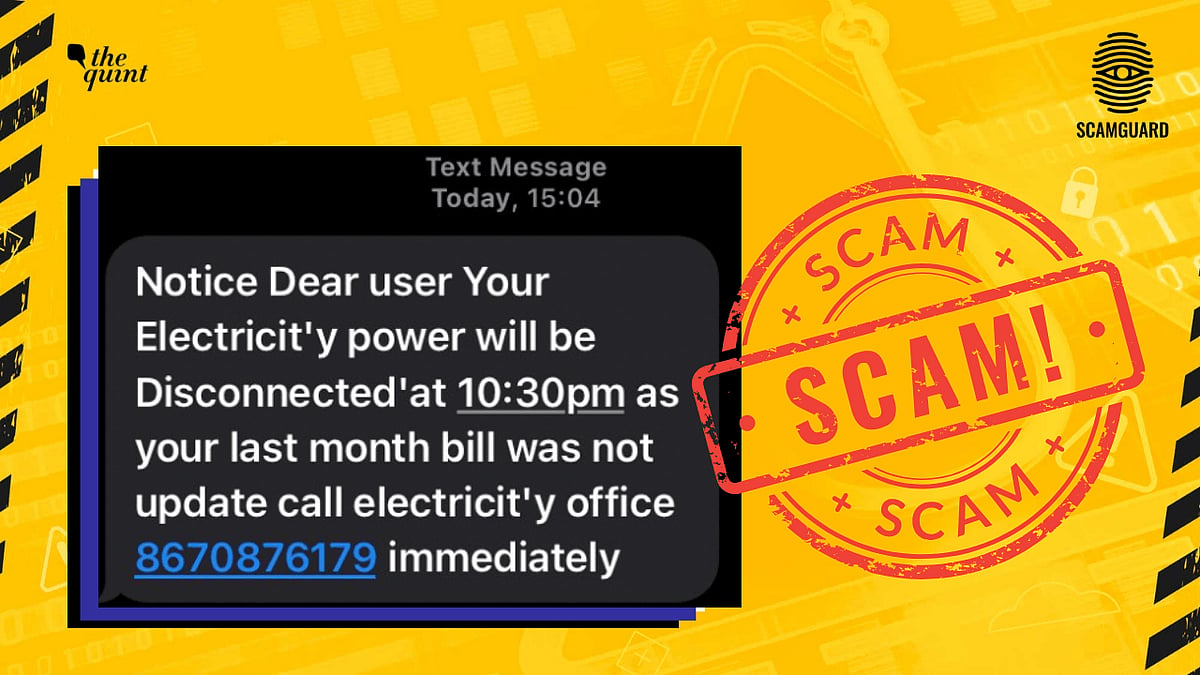Paid Your Electricity Bill? Scammers Threaten Power Cuts With Fake Messages
Decoding the electricity bill scam where scammers target individuals saying their power supply will be discontinued

advertisement
You receive a message stating that your electricity bill is overdue and that your power supply will be disconnected if the amount is not paid immediately.
You might ignore it, knowing that your bills are up to date, but soon enough, you receive more messages threatening action. Eventually, you engage with the sender, and before you know it, you’ve been duped.
Here’s what you should know about the electricity bill scam to remain connected and protected:
Modus Operandi
Power Cut: Scammers send a text message stating that your power supply will be disconnected the same night due to non-payment of a previous bill. You are instructed to immediately contact a phone number mentioned in the message.
Remote Access: On the pretext of assisting you, the scammers direct you to download the TeamViewer or AnyDesk app, which allows them access to your device.
Malware Installation: Once they have control of your device, the scammers install malicious software to steal sensitive information, including banking details.
Money Transfer: You are asked to transfer a small amount using NetBanking. When you add your login credentials, scammers capture them using a keystroke logger - a software that can record every keystroke typed on the keyboard.
Unauthorised Transactions: Now that the scammers have your login details, they can make transfers or payments using your account.
Red Flags
Any messages or calls from unverified mobile numbers threatening disconnection of power supply on the same day.
Instructing you to download remote access apps in the guise of offering support to make payments.
Demanding immediate money transfers via their preferred gateway instead of allowing you to follow your routine bill payment method.
Use of informal language, along with spelling and grammatical errors in the messages.
What To Do
Verify: Pause for a second and check your bill status and payment history on the official website or the electricity board’s app.
Call: You can also contact the customer support helpline on the board’s official website to check your updated bills.
Decline: Do not download unknown apps or click on suspicious links the scammer shares and refuse payments.
Report: If you were duped or were able to spot this scam, then report the incident as soon as possible through a government portal such as Chakshu (https://sancharsaathi.gov.in/sfc/) and the national cybercrime helpline number—1930. You can also lodge a complaint with the local police station.
(The Quint's Scamguard initiative aims to keep up with emerging digital scams to help you stay informed and vigilant. If you've been scammed or successfully thwarted one, then tell us your story. Contact us via WhatsApp at +919999008335 or email us at myreport@thequint.com. You can also fill out the Google form and help us take your story forward.)
(At The Quint, we question everything. Play an active role in shaping our journalism by becoming a member today.)